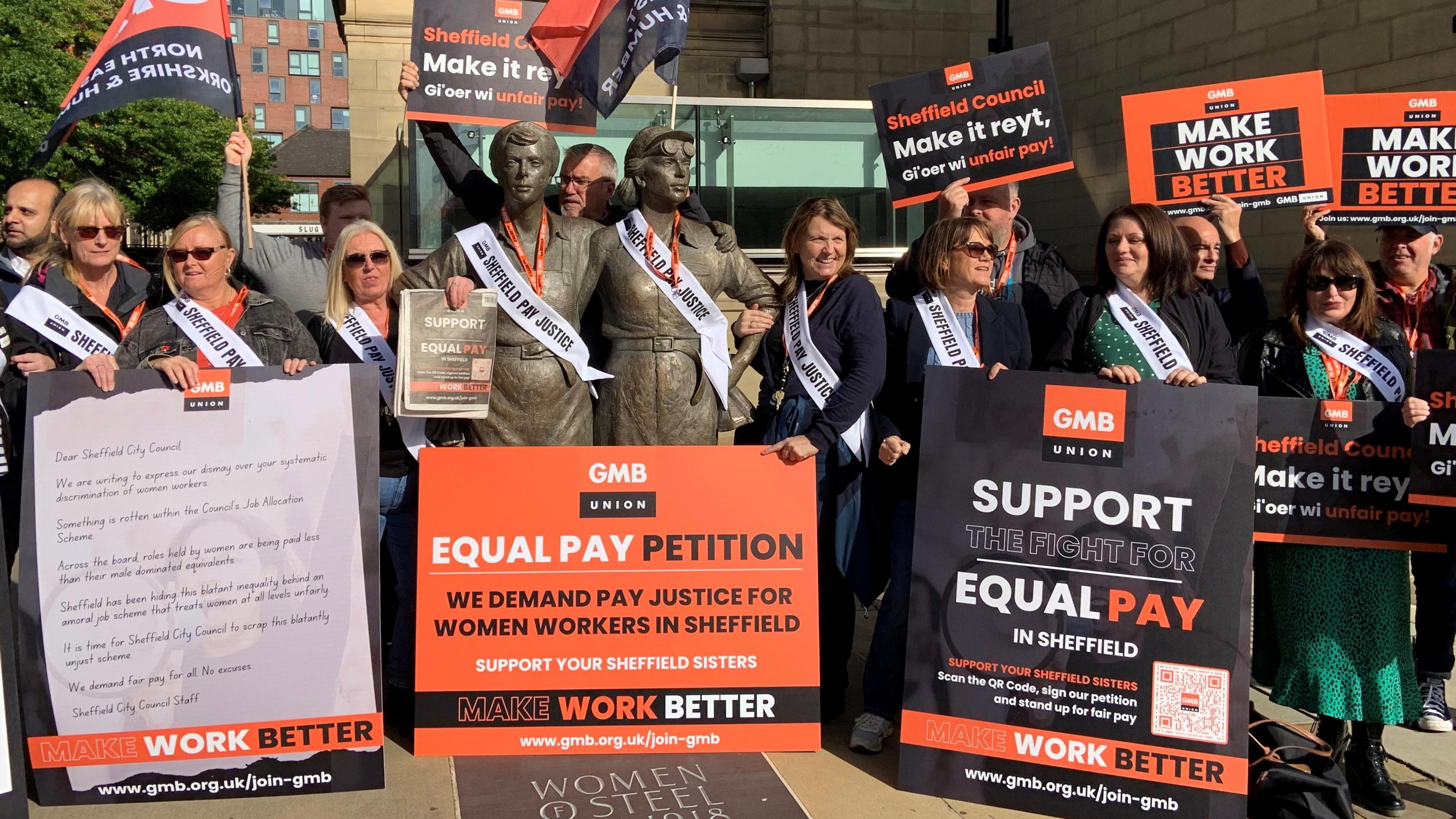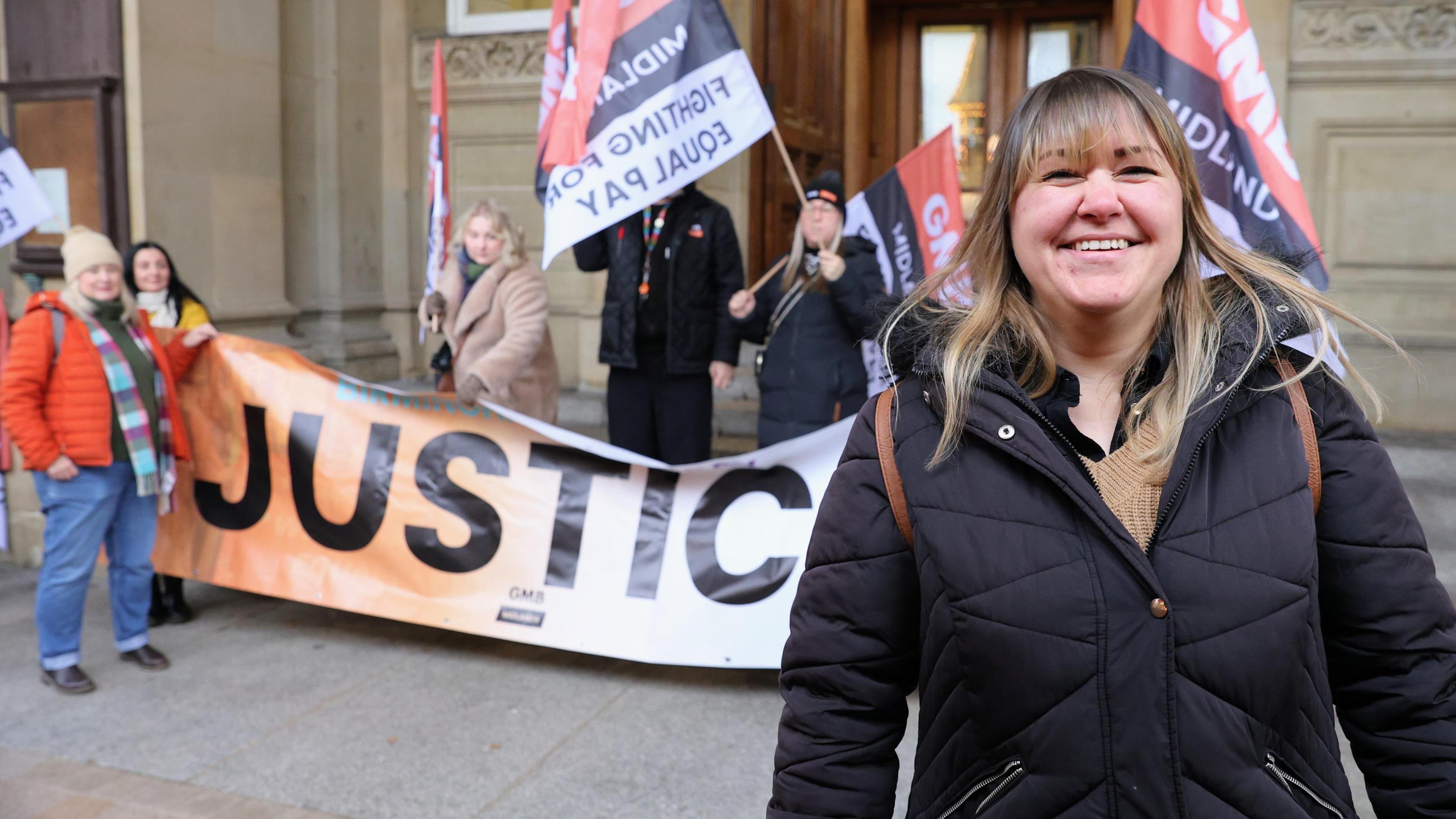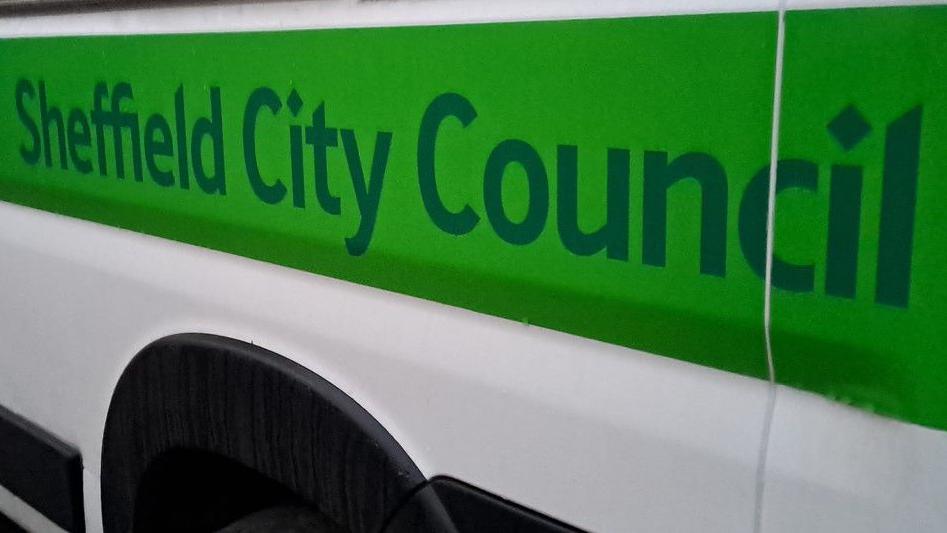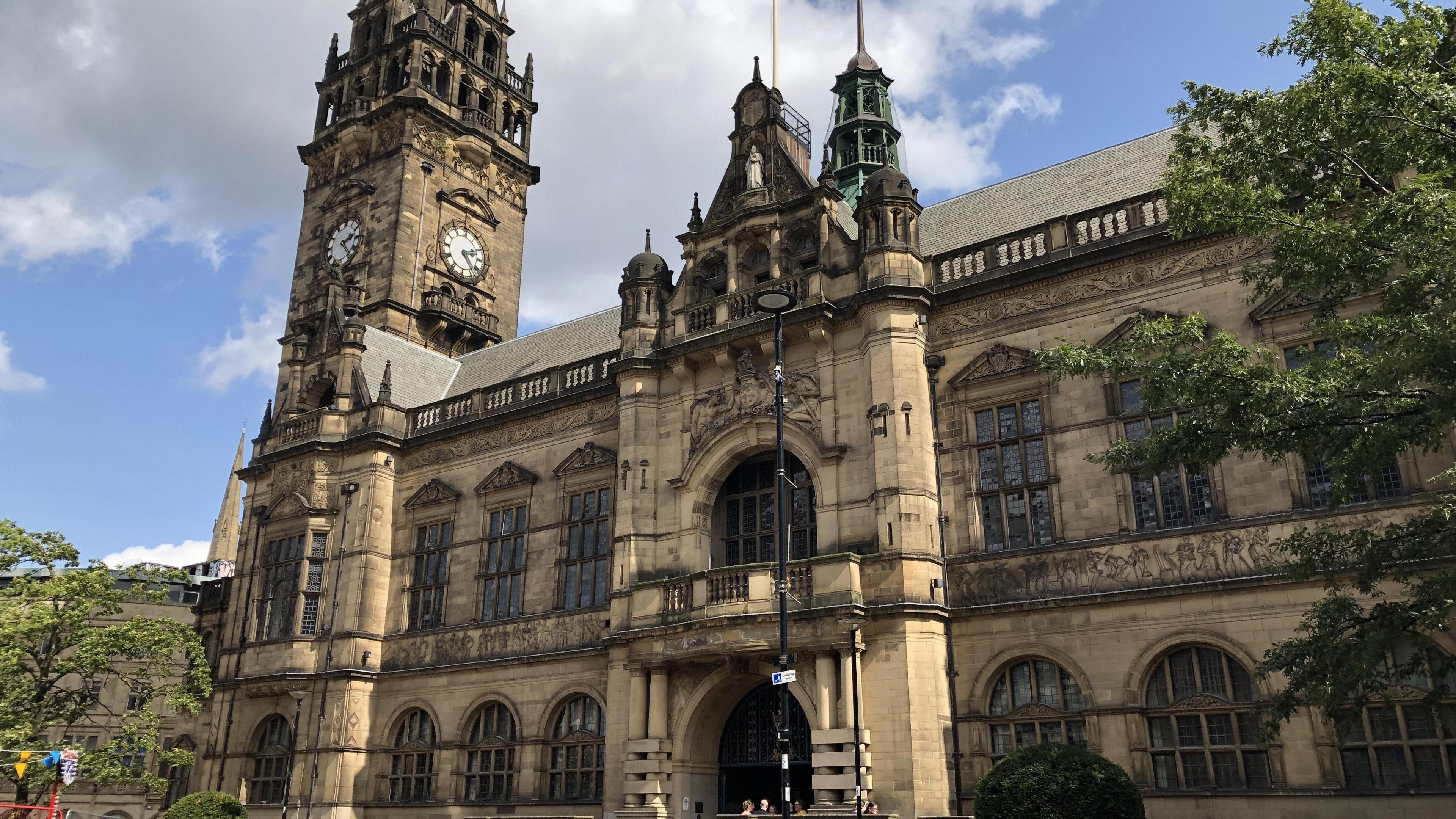Jobs freeze at council with £28m budget black hole

Sheffield Council has announced a recruitment freeze
- Published
Sheffield Council is to freeze recruitment for six months as it grapples with a budget gap of more than £28m.
The authority said it would stop external and non-essential internal recruitment from 1 September to save £6m.
All non-essential spending - including travel, training and projects - would be tightly restricted and there would be a "prudent review" of reserves. Funding already earmarked could potentially be re-allocated, it added.
Councillor Zahira Naz, chairman of the finance committee, said: "We are facing the same tough choices as councils across the country, but we are taking clear, co-ordinated action now to tackle these challenges."

Campaigners who lobbied for the equal pay review at Sheffield council
A council report said there had been "a persistent budget overspend that we need to tackle".
Officers are aware that the findings from an equal pay review looking at 2,000 different job roles will be published next year.
Sheffield council has previously said it was confident any equal pay claims would not be on a scale serious enough to bankrupt the council, but similar pay reviews at other councils nationwide have led to multimillion-pound backdated pay-outs.
'Rigorous review'
The recruitment freeze would contain immediate staffing costs and give the council time to reassess its workforce in the longer term, the budget report said.
Managers would need to deliver services with a lower budget "encouraging creative solutions and potential realignment of roles where appropriate".
The council said its budget had been reduced over a number of years with continued pressures in adult social care, children's services and homelessness, driven by rising demand and ongoing cost increases.
In adult social care, there would be a "radical review" of non-essential and discretionary spending to reduce costs.
With special educational needs and disabilities, senior managers were having daily meetings "to drive down" the number of students transported by taxis from home to school, which currently stands at more than 1,200.
There would be a "rigorous review" of who is eligible for transport, routes and post-16 travel policy, the authority said.
Parents of disabled children can get direct payments so they have more control and flexibility over services, but there would be "detailed analysis to identify cost-saving opportunities".
The report said: "Measures include scrutinising high-cost care packages and assessing the feasibility of in-house residential facilities to ensure value for money."
Get in touch
Tell us which stories we should cover in Yorkshire
Listen to highlights from South Yorkshire on BBC Sounds, catch up with the latest episode of Look North
Related topics
- Published10 December 2024

- Published20 February

- Published5 March
